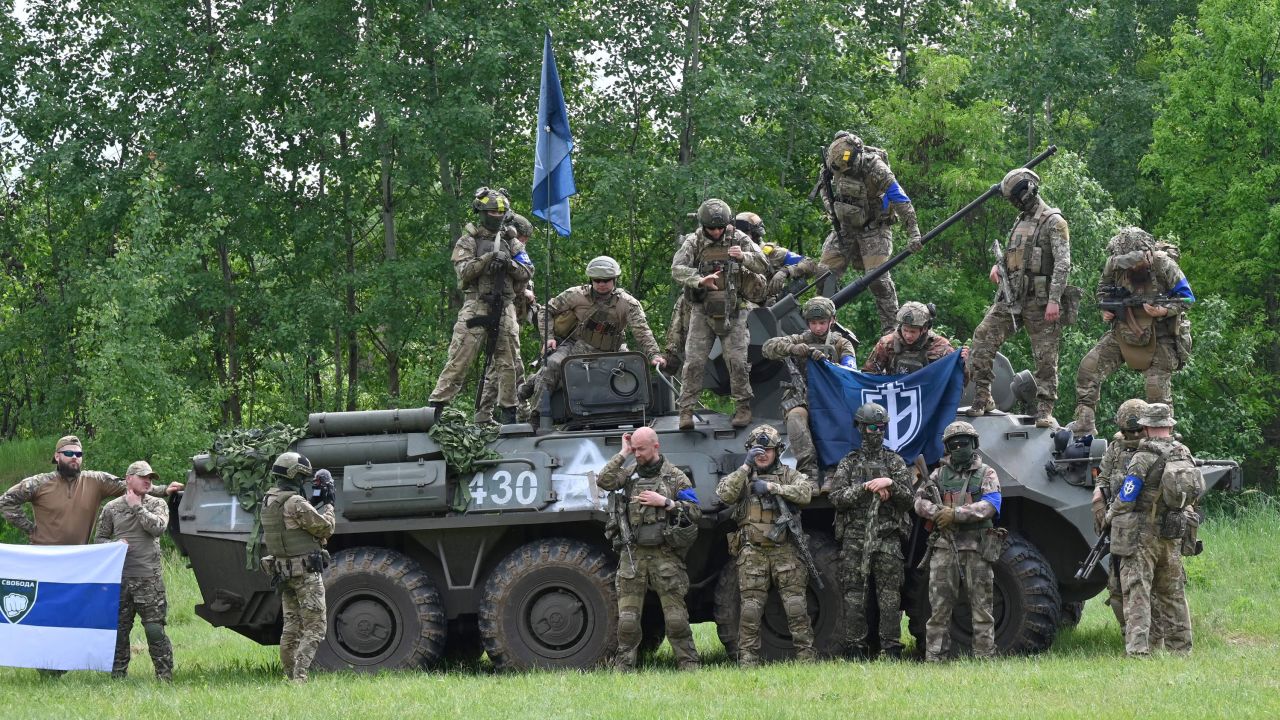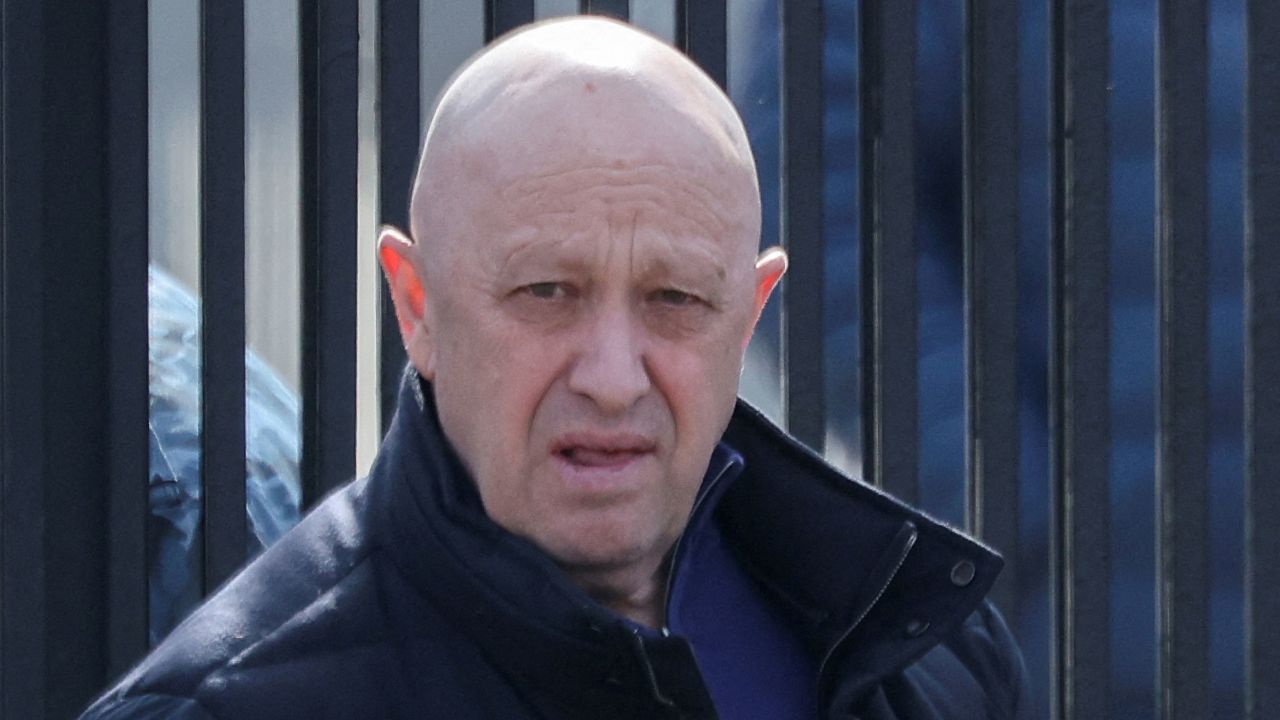
CNN — Ukraine has opened a new front in its battle to drive out the Russian invader - in Russia. But it is oddly coy about admitting that it has sent troops, fired artillery, and flown drones into its neighbour's territory.
The operations of Russian citizens, carrying Ukrainian military ID, wearing Ukrainian uniforms and attacking from Ukraine, remain officially opaque. It is Kyiv’s contribution to what’s become known as “hybrid warfare” in the “grey zone” of contemporary conflict.
The two terms provoked books and a tsunami of excited opinion from an army of pundits when Russia first invaded Ukraine in 2014.
Back then, “Little Green Men” in peculiar two-tone sport-hunting uniforms – and Russian military fatigues – appeared in Crimea.
When it was suggested that maybe, just maybe, these men were actually Russian troops, Vladimir Putin quipped “You can go to a store and buy any kind of uniform”.
Moscow’s official line was that the men who raised the Russian flag over Simferopol and stormed Crimea’s local parliament were “self defense units” of pro-Russian Ukrainians anxious to bring their territory under Moscow’s rule.
By the time Moscow admitted that its troops were actually in Ukraine, a large chunk of the 23-year-old, former Soviet nation was under Putin’s control.

Fighters of the Russian Volunteer Corps and allied group, the Freedom of Russia Legion, stand next to a seized armoured personnel carrier on May 24, 2023. Sergey Bobok/AFP/Getty Images
Now, on a small scale, Ukraine is adapting those same tactics to try to secure strategic effect.
The Russian Volunteer Corps and the Freedom for Russia Legion – which fall under Ukraine’s Defence Intelligence structure – have been conducting short cross-border raids into Russia.
The principal aim? Destabilization.
While the terminology and methods may have evolved, there’s nothing new about the tactic. Aside from Russia, South Africa’s apartheid regimes used similar techniques through the 1970s and 1980s, attacking the Frontline States of Angola, Zambia, Zimbabwe and Mozambique.
Pretoria sent troops on cross-border raids to destabilize the independent African nations opposed to its racist rule. They often posed as local liberation fighters in classic “false flag” attacks against civilians, trying to undermine support for liberation movements.
These groups were frequently formed of fighters from Angola, or Zimbabwe, to add “authenticity” to the atrocities they hoped to attribute to others. They were often led by white men in blackface camouflage.
The long term aim – and many times, the result - was to keep the nations supporting South Africa’s internal liberation struggle permanently off-balance.
Russia rattled
In Ukraine, it suits Kyiv to have Russians invade Russia on its behalf.
The tactical results may be limited. Brief incursions into small border villages. But the desired effect of destabilization in Russia is achieved.
Russian TV has been awash in breathless, and terrified, reports by local journalists on the artillery attacks against Russian towns.
The governor of Belgorod – the region worst hit by the latest Ukrainian campaign – has evacuated hundreds of civilians, has been in personal telephone contact with Putin, and has already picked up a bravery gong for his efforts.
Meanwhile the Freedom for Russia Legion is posting advertisements on its Telegram channel for drone pilots to join its ranks.
It may, or may not, be behind the growing numbers of drone strikes that have hit Russian territory, from the Kremlin and the upscale Moscow suburbs favored by Putin’s allies, to the cities of Kursk, Smelensk and Krasnador.
The point is to make the attacks inside Russia feel like they have a significant Russian flavor - to suggest that more Russians are heeding the dissident “Cry Freedom” and joining in a homegrown effort to depose Putin.
Both the Russian Volunteer Corps and the Freedom for Russia Legion claim to have supporters in their home country.
They may indeed. Someone unleashed the blue and white flag of the Russian opposition movement over Moscow last week. Someone’s helping with either flying, or training, drones onto Russian targets.
As far as Ukraine is concerned, the more Russians think that their compatriots are involved in attacking the Russian regime the better. Doubt itself is destabilizing.
Judging by the rhetoric coming from Russia, it’s working.
Opening a meeting with his Security Council on Friday, Putin said “ill-wishers” must be prevented from destabilizing Russia.
He said the council would focus on ensuring domestic political security, taking into account the enemy’s intensified efforts “to stir up the situation within the Russian Federation.”
“We must exert every possible effort not to allow them to do this under any circumstances,” Putin added.
War coming home
Ukraine could ask for no greater ally in this strategy than Yezgeny Prigozhin, the outspoken leader of Russian mercenary group Wagner.
“Wagner PMC wants at least of one month of recovery as it was a tough job, tough year… And then there will be the next scuffles, I think, most likely this time on Russian territory,” he said after the incursions and drone attacks against Russia.
As a bonus for Kyiv, Prigozhin went on to lambast Russia’s military leadership. The Russian chain of command was “controlled by clowns who just treat men as cannon fodder,” he said, adding, “then we won’t be part of this chain.”

Prigozhin leaves a cemetery before the funeral of a Russian military blogger who was killed in a bomb attack in a St Petersburg cafe, in Moscow, Russia, April 8, 2023. Yulia Morozova/Reuters
On the drone attacks on Moscow over the past week, he had this to say to Russia’s generals: “You stinking animals, what are you doing? You are swine! Get up off your asses from the offices you’ve been put in to defend this country.”
Dmitry Medvedev, a close Putin ally, was similarly rattled by the extent to which war has come to Russia. He reacted with something close to hysteria.
“It’s clear what response is needed: They need to be annihilated, not just in a personal capacity, but we have to destroy them in the hornets’ nest itself. The regime that has developed in Ukraine should be exterminated,” said Medvedev.
He may sound like a Nazi but his words contained sinister echoes of the genocidal Holodomor of the 1930s, when, under the Soviet Union, an estimated three million Ukrainians were deliberately starved to death, middle class farmers were eradicated and the Ukrainian language banned.
But such fulminations may not impress ordinary Russians.
The Belgorod governor says dozens of strikes hit border districts inside Russia over last day or so.
In a long post on his Telegram channel, Vyacheslav Gladkov said that much of the incoming fire was artillery and mortar against border districts. There had been damage to roads, property and vehicles, he added, while 12 people had been injured in 24 hours in the border town of Shebekino.
One woman who spoke to a pro-Russian Telegram channel said Shebekino was “on fire, the battles there are ongoing,” adding: “We have fled the city. “
“There are very few of our people there. Previous days with all the shelling - there was almost no response, no (Russian) military. We were left on our own,” the unnamed woman said. CNN is unable to verify her account of events.
But her views may spread. And Russia’s response to the campaign on its soil may destabilize its military campaign inside Ukraine - and with it the politics at home.
Take your Radio, Podcasts and Music with you









